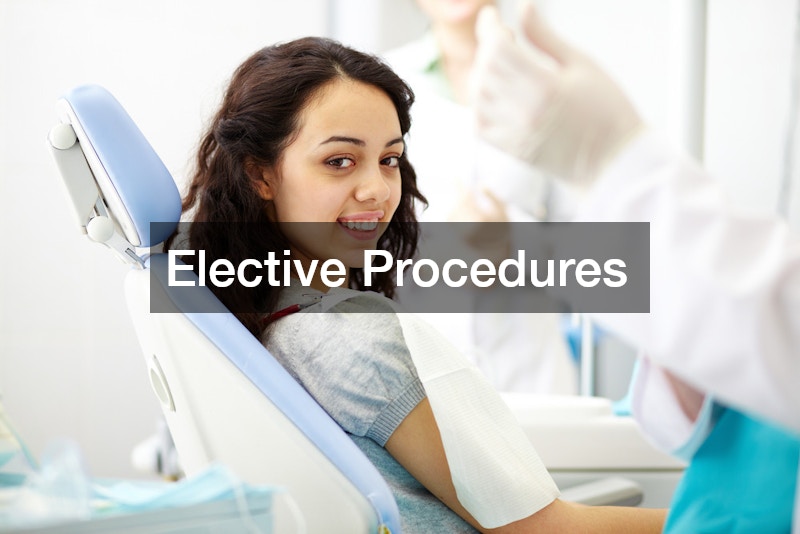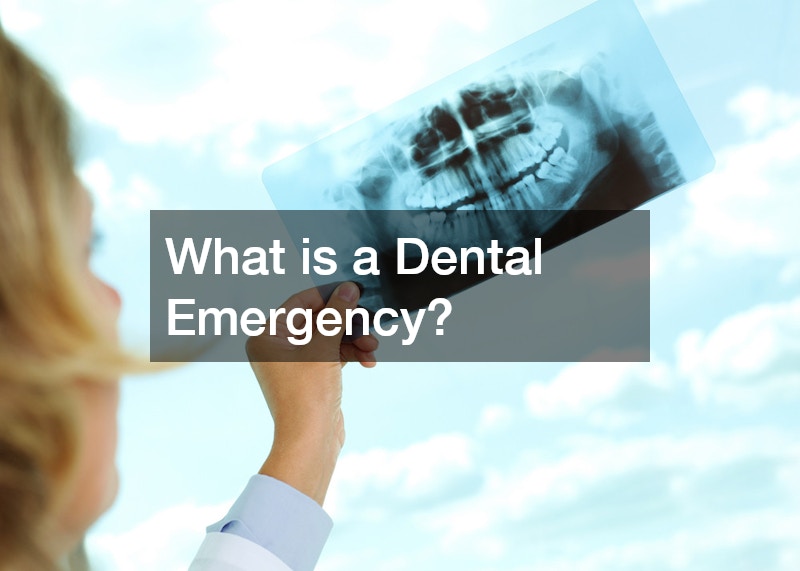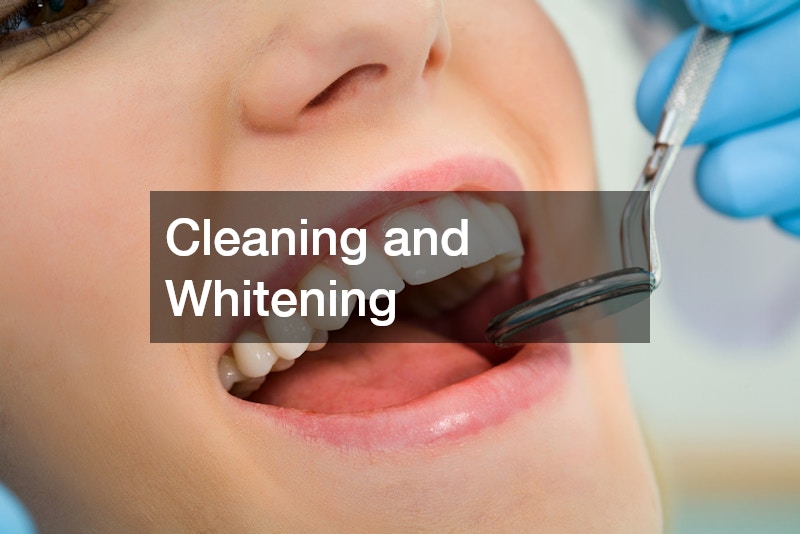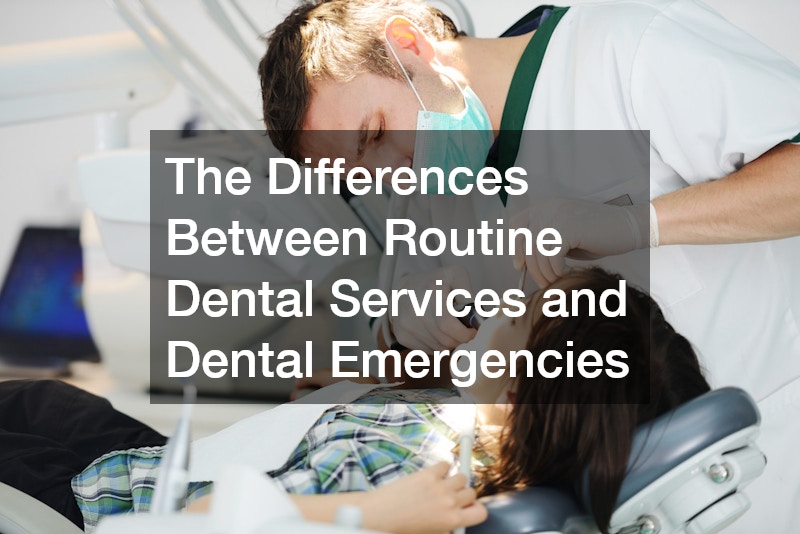Introduction
Our teeth are integral not only to our overall health but also to our self-esteem, making routine dental services essential for everyone. A dazzling smile and healthy teeth can significantly impact our personal interactions and professional relationships. As a consequence, the role of a local dentist extends beyond mere dental care to encompass confidence-building and holistic health maintenance. In this comprehensive guide, we will explore the varied procedures and treatments available through routine dental services. From elective procedures with a local cosmetic dentist to emergency interventions, understanding these services empowers patients to take proactive steps toward maintaining excellent oral health. Whether it’s undergoing teeth cleaning or a restorative dentistry service, regular visits to dental professionals can detect problems before they become serious health concerns. We will delve into each aspect of dental care, aiming to clarify terms and dispel fears by providing reliable information on procedures like dental crowns, root canal treatment, and cosmetic implants. By understanding these services, patients will feel more comfortable reaching out for their annual dental appointment, keeping their teeth in pristine condition. Throughout this exploration, we will keep in mind that dental healthcare is not just about the teeth but the overall well-being of an individual. Join us as we navigate through the world of dental services, beginning with elective procedures and brushing up on everything in between.
Elective Procedures

Elective dental procedures, often provided by a local cosmetic dentist, are increasingly popular for those seeking to enhance their appearance. Services offered by such professionals range from teeth whitening to veneers, allowing patients to achieve their desired aesthetic goals. These procedures not only improve the look of teeth but can also significantly boost an individual’s self-confidence.
While routine dental services typically focus on maintaining oral health, elective procedures go a step further to ensure patients are aesthetically satisfied. A local cosmetic dentist usually provides a personalized approach by evaluating the patient’s oral structure and recommending the most suited procedures. Knowing when to seek these services is crucial in distinguishing between cosmetic desires and health necessities.
Understanding the scope of elective procedures helps patients make informed decisions about their dental care. These services are performed with precision and should be complemented by regular check-ups to ensure overall dental health. Elective procedures, while important, should always be considered supplementary to routine dental services that ensure healthy teeth and gums.
Protecting and Treating Your Teeth
Dental crowns play a crucial role in protecting and strengthening teeth that have been damaged. Made of durable materials like porcelain or metal, these crowns can cover a weak tooth or restore one that has been broken or severely worn down. Dental crowns are an essential part of routine dental services, aiding in the preservation and longevity of teeth.
While local cosmetic dentists focus on the aesthetic aspects, protecting teeth involves more than just looks. Routine dental services often include checking for any potential issues that might require crown placement. Dentists ensure that any sign of tooth decay or structural damage is addressed promptly to prevent further complications.
It is vital for patients to understand the importance of visits to their local dentist regularly. Regular check-ups not only ensure the perfect placement and condition of dental crowns but also encompass other protective measures like fluoride treatments. Such protective and restorative services are pivotal in maintaining oral health and avoiding more serious procedures.
What are Routine Services?
Routine dental services constitute the backbone of oral health care, involving regular assessments and maintenance to prevent diseases. Services provided by a local dentist typically include teeth cleaning, X-rays, and examinations to identify any signs of decay or other dental issues early. These services are the cornerstone of preventing severe dental problems and ensuring long-lasting oral health.
Routine services are often underestimated, but they form a preventive measure that ensures minor issues do not evolve into costly, expansive treatments. Every dental appointment scheduled is an opportunity for evaluation and cleaning, removing plaque and tartar that can’t be managed by regular brushing and flossing. Such routine inspections help in identifying potential problems, leading to timely interventions.
The significance of these services lies in their role in preventing dental decay and other serious issues. Beyond cleaning, dental professionals offer guidance on maintaining oral hygiene, thus empowering patients to cultivate better habits at home. Understanding this routine approach is key to sustained oral health and savings in healthcare costs over time.
What is a Dental Emergency?

Dental emergencies are urgent issues that require immediate attention from an emergency dentist. Situations like a broken tooth, severe toothache, or a knocked-out tooth are considered emergencies. Identifying these emergencies ensures that proper care is sought quickly, reducing the risk of permanent damage or further complications.
While routine dental services help maintain oral health, emergencies can arise despite regular care. These situations are unpredictable and necessitate swift action, often necessitating advanced procedures beyond the scope of regular check-ups. Knowing the distinction between urgent and routine care is essential for managing dental health effectively.
An emergency dentist is trained to handle such situations promptly, offering services such as pain relief, temporary crowns, or tooth extractions. A well-informed patient knows the importance of having access to emergency services, knowing it complements the preventive prowess of routine dental services. Being prepared for emergencies, by recognizing symptoms and seeking help, can significantly mitigate adverse effects on dental health.
Replacing Lost Teeth
The loss of teeth, whether due to injury or decay, can greatly affect a person’s life both functionally and aesthetically. Cosmetic implants offer a popular solution for replacing lost teeth, giving patients a natural-looking and permanent replacement option. These implants consist of titanium posts that act like the roots of natural teeth, providing a strong foundation for artificial teeth.
Acquiring cosmetic implants often involves several appointments with a specialized dentist and aligns closely with routine dental services. Initial consultations, assessments, and post-operative care are all essential steps towards successful implantation. These services ensure the seamless integration of the implant, promoting restorative benefits while enhancing appearance.
Replacing lost teeth not only restores the smile but also prevents adjacent teeth from shifting, hence maintaining proper alignment. Together with routine dental services, cosmetic implants are integral in restoring the functionality of your mouth and supporting overall dental health. Dental implants, though classified as cosmetic, play a critical role in dental restoration and patient confidence.
Cavities and Plaque
Cavities and plaque are frequent concerns that require regular attention through routine dental services. Plaque is a sticky film of bacteria that forms on teeth, leading to decay and cavities if not removed regularly. Routine services like teeth cleaning help in removing plaque, reducing the risk of cavities, and maintaining oral hygiene significantly.
Teeth cleaning is an integral service provided by local dentists to ensure that teeth remain free from harmful bacteria and build-up. Regular cleanings at dental appointments help prevent tartar build-up, which can lead to gum disease and other serious dental issues. Dentists use specialized tools to meticulously clean teeth surfaces and under the gumline.
Routine dental services focus significantly on addressing cavities and plaque due to their commonality and potential impact on dental health. With appropriate preventive care, dentists not only treat existing issues but provide guidance to patients on maintaining optimal oral hygiene between visits. This proactive approach ensures that teeth and gums remain healthy and disease-free.
Cleaning and Whitening

Regular cleaning and whitening are crucial aspects of maintaining a bright and healthy smile. While teeth cleaning is a standard part of routine dental services, professional teeth whitening helps individuals achieve a more polished look. This procedure is often preferred by patients seeking immediate results for an enhanced appearance.
A dental appointment specifically for cleaning focuses on removing stains and discoloration caused by food, drinks, or smoking. Dentists recommend regular cleaning as a preventive measure, offering protective benefits while ensuring aesthetic consistency. Cleaning sessions are an opportunity to discuss whitening options, ensuring a tailored approach for each patient.
Whitening, provided as part of elective or routine services, can significantly impact one’s confidence and self-perception. By removing surface stains and providing brightening treatments, dental professionals contribute to maintaining both the health and appearance of patients’ smiles. Consistent care routines between visits further ensure lasting results for those seeking whiter teeth.
Treating Infections
Infections in the mouth, often due to untreated decay or damage, require prompt intervention to prevent severe health issues. Root canal treatment is a common procedure for treating infections in the nerve and pulp of a tooth. This treatment is essential for saving a tooth that might otherwise need extraction due to infection.
Routine dental services emphasize early detection and intervention of infections to minimize the need for extensive treatments like root canals. Regular check-ups help identify infections at an early stage, allowing for swift and effective treatment to preserve dental health. Consulting with dental professionals regularly can prevent the progression of these troublesome infections.
The root canal treatment process involves cleaning, disinfecting, and sealing the affected area to prevent further infection. This crucial service is an excellent example of how routine dental services aim to preserve teeth and support patients’ oral health over the long term. By addressing infections effectively, routine dental care ensures the preservation of natural teeth and overall wellness.
Mouth Health Concerns
Mouth health encompasses various aspects, including issues like tongue tie, which can affect speech and eating. Tongue tie correction procedures aim to release the restrictiveness of the tongue, offering relief and improved function. Addressing such concerns through routine dental services is vital for ensuring comprehensive oral health.
Routine services often involve assessing and addressing tongue tie issues, especially in children, to prevent complications later in life. Local dentists are equipped to identify tongue tie and recommend appropriate interventions swiftly. Understanding this condition’s impact on daily functioning emphasizes the broad scope of services included in routine dental care.
Tongue tie correction, performed by experienced dentists, is a straightforward procedure that can dramatically improve a patient’s quality of life. By offering this and other timely interventions, routine dental services contribute significantly to treating and managing diverse mouth health concerns. Early intervention is key to improving outcomes and fostering better long-term dental health.
Bringing Your Smile Back

Restorative dentistry services aim to bring back the function and appearance of a patient’s smile. These services include procedures like fillings, crowns, and bridges, addressing various dental issues from decay to injury. Restorative dentistry not only repairs but also enhances the structural integrity and beauty of teeth.
By incorporating routine dental services, patients receive comprehensive care to support their restorative needs. These services ensure that patients receive personalized treatments that cater to their unique situations, informed by regular dental evaluations. The collaboration between regular maintenance and restorative procedures provides optimal outcomes for dental health.
The ultimate goal of restorative dentistry is to maintain a healthy and vibrant smile, one that supports the individual’s overall well-being. Alongside maintaining function, these services contribute to the patient’s self-assurance by ensuring that their smile is strong and aesthetically pleasing. Combining innovation with routine care demonstrates dentistry’s ability to profoundly improve patient lives.
Conclusion
In conclusion, routine dental services play a vital role in preserving dental health and ensuring long-term well-being. This exploration has highlighted the diverse range of services available, reflecting how integrated dental care is crucial for maintaining both oral health and a confident smile. Starting from routine cleanings and progressing to specialized procedures such as root canal treatment or restorative dentistry, each service aligns to protect and improve dental functionality. The synergy between local dentists and specialized professionals ensures comprehensive care for every patient, tailored to individual needs and conditions.
The importance of routine dental visits cannot be overstated, serving both as a preventive measure and a gateway to necessary treatments that might arise. Regular check-ups are the foundation for identifying issues early, enabling dentists to intervene before problems escalate, thus promoting effective and efficient health management. The coverage of various elective procedures and their role in empowering patients highlights how personal aesthetics and health are intertwined, further emphasizing the holistic approach that modern dentistry embodies.
Overall, understanding and engaging in routine dental services is an investment in one’s future health and happiness. Through creating a prevention-based approach, patients can enjoy the benefits of a healthy, radiant smile. The emphasis on regular care planning between patients and their dental care providers forms the core of successful treatment outcomes and sustained oral wellness. In wrapping up, the journey through dental health is one of proactive engagement and informed collaboration, upholding the central role of routine care in achieving vibrant dental health and a fulfilling life experience.






